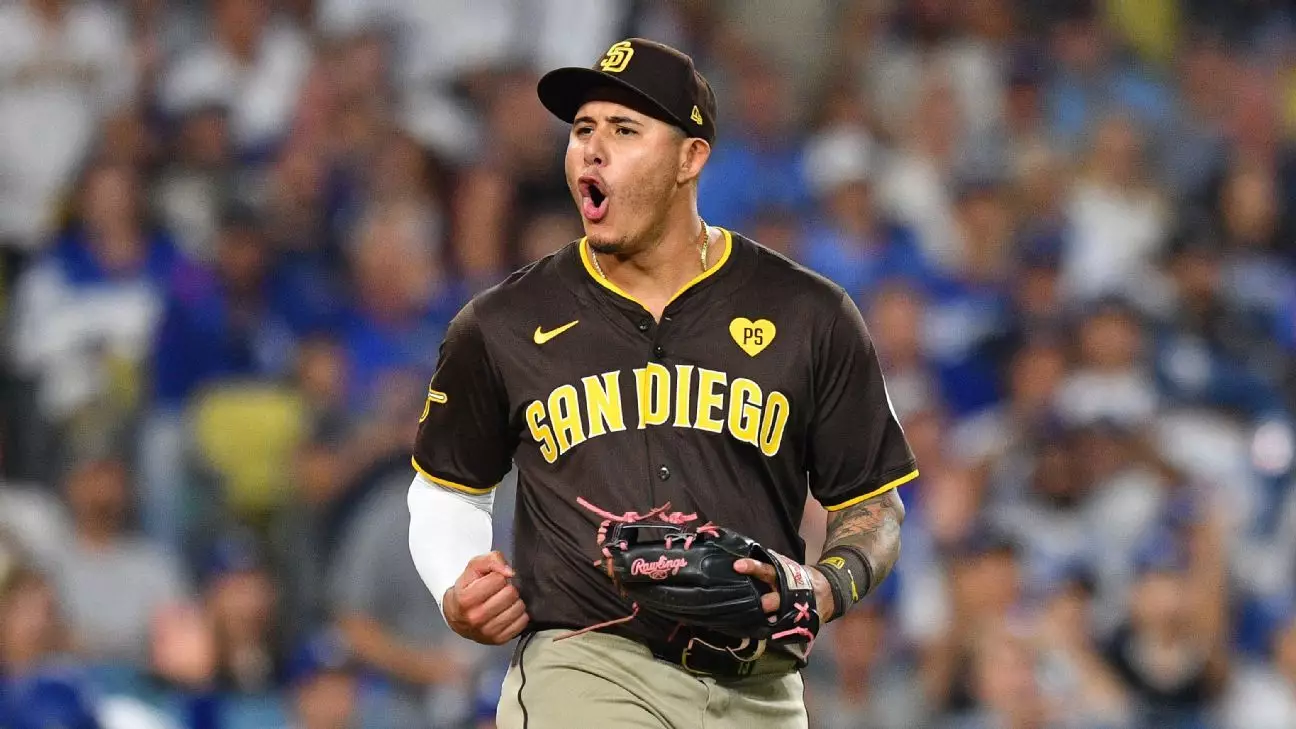In the high-stakes atmosphere of Major League Baseball’s postseason, emotions run rampant, particularly when two rivals like the San Diego Padres and the Los Angeles Dodgers face off. Recently, a tense moment drew significant attention, igniting passionate responses from both teams’ management. Specifically, Padres manager Mike Shildt took a firm stand in defense of star player Manny Machado after Dodgers manager Dave Roberts criticized a throw that Machado made during a game. Shildt’s defense highlights the complexities of competitive sports, where one may grapple with external perceptions while also fostering an encouraging internal team environment.
Shildt’s response to Roberts’ criticism was not just a mere defense of Machado; it was a broader appeal for mutual respect in the world of professional sports. By refusing to disparage another player or team—especially someone he has managed in previous contexts—Shildt reinforced the idea that athletes should rise above the noise of controversy. His comments serve to emphasize accountability and respect within the game, which is essential for maintaining a positive sportsmanship culture.
In a recent game, Machado took a leadership role, leading an on-field meeting in the dugout following an incident in which objects were hurled by fans from the stands. Shildt highlighted this moment as epitomizing Machado’s growth both as a player and a community leader, showcasing a commitment to team cohesion during turbulent times. Shildt’s assertions that Machado’s actions are indicative of his potential to be recognized with the Roberto Clemente Award underscore the player’s contributions that extend beyond the diamond. This recognition not only elevates Machado’s status as a player but also demonstrates the influence of leadership in fostering resilience amidst adversity.
Furthermore, Shildt’s remarks press upon the importance of cultivating a supportive atmosphere within a team. Acknowledging one’s imperfections while simultaneously celebrating growth is crucial for any team aspiring to success in high-pressure situations. While errors like Machados are scrutinized, the focus must shift towards how players respond and lead, transforming a moment of tension into an opportunity for unity and fortitude.
As the series progresses, the players face the challenge of maintaining their composure amidst heightened emotions. Dodgers’ third baseman Max Muncy articulated this struggle brilliantly, acknowledging that feeding into the charged atmosphere could benefit their rivals. This insight goes beyond mere strategy; it illustrates the psychological aspects of sports under pressure. Recognizing how emotions can affect performance is vital for teams seeking to control the narrative on the field. Emotion can be both a catalyst for outstanding performances and a trap that leads players astray.
The ongoing series between the Padres and Dodgers serves as a powerful case study of how sportsmanship, leadership, and psychological awareness come together during critical moments. The echoes of Shildt’s defense of Machado resonate beyond one player; they symbolize the spirit of camaraderie needed to forge success in the competitive landscape of postseason baseball. As the series continues to unfold, it will be fascinating to see how both teams navigate their emotional landscapes while striving for victory.

Leave a Reply